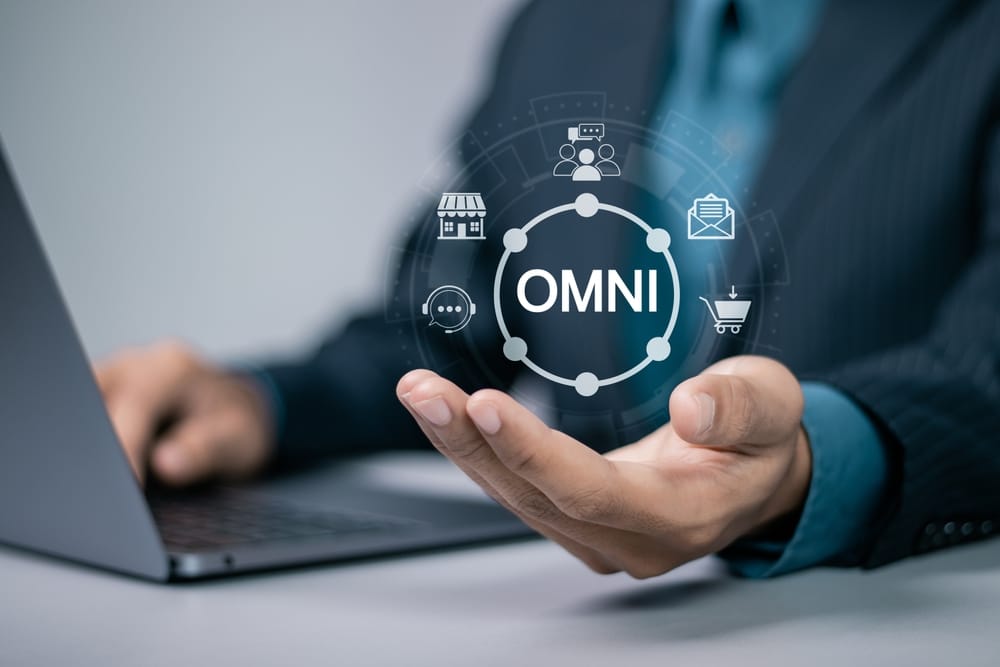The broad digital marketing space can be broken down into numerous sub-categories and nuanced areas, and one such sub-category that’s becoming more and more popular and important in recent years is known as omnichannel marketing. What is omnichannel marketing, and how can a great omnichannel marketing strategy help create seamless customer journeys across the various platforms they may utilize for their web usage?
At BWP Communications, we’re proud to serve as the top digital marketing and ad agency across Salt Lake City, assisting clients with a wide range of different digital strategies to help them reach their target demographics. Here are some basics on omnichannel marketing strategy and how it helps create customer journeys, including how it differs from similar forms of marketing and how to overcome some of its key challenges.
What is Omnichannel Marketing?
As its name suggests, an omnichannel marketing strategy is one that aims to create a unified, seamless customer experience across every single possible channel they may use – both online and offline in nature. This means ensuring that customers are able to interact with and purchase from a brand using their preferred methods of communication, whether it be through social media, email, in-store, or any other channel.
For instance, a customer may discover a product through an online ad, research it further on the brand’s website, and ultimately make the purchase in-store. With omnichannel marketing, each step of this customer journey is integrated and streamlined for maximum convenience and consistency.
Why is Omnichannel Marketing Important for Seamless Customer Journeys?
In today’s digital age, customers have more options than ever before when it comes to engaging with brands. They expect a seamless experience across all channels and will quickly move on to another brand if their expectations are not met. This makes having an omnichannel marketing strategy crucial for businesses looking to stay competitive and retain loyal customers.
Furthermore, with the rise of social media and mobile devices, customers now have the power to share their experiences and opinions about brands with a global audience. This means that providing a positive customer experience is not only important for retaining current customers, but also for attracting potential new ones.
Having an omnichannel marketing strategy allows businesses to provide a consistent and cohesive experience across all channels, including social media, email, website, mobile apps, and in-store interactions. This creates a seamless journey for customers as they interact with the brand through different touchpoints.
How Does It Differ From Multichannel Marketing?
Multichannel marketing is often confused with omnichannel marketing, but there are significant differences between the two approaches. While multichannel marketing simply means utilizing multiple channels to reach customers, omnichannel marketing takes it a step further by integrating those channels into one cohesive strategy. Omnichannel marketing also focuses on providing a seamless experience for customers across all channels, rather than just having a presence on multiple platforms.
Furthermore, today’s uses of multichannel marketing tend to focus primarily on online-only channels, such as social media and email marketing. Omnichannel marketing, on the other hand, incorporates both online and offline channels, such as brick-and-mortar stores and print advertising, into its strategy.
This integration of multiple channels allows for a more holistic approach to reaching customers and creating a consistent brand experience. For example, a customer may receive an email promotion for a product, visit the company’s physical store to see the product in person, and then make the purchase through the company’s website. Each step seamlessly flows into the next, providing convenience and ease for the customer while also promoting brand recognition.
Vital Role of Automation Tools in Omnichannel Marketing Strategy
Among a few tools that are important for implementing an omnichannel marketing strategy, automation tools play a vital role in managing and integrating various channels effectively. These tools are designed to streamline the entire process and make it easier for businesses to connect with customers across multiple touchpoints.
With automation tools, companies can create targeted and personalized campaigns that cater to the specific interests and needs of their customers. They can also track customer behavior across different channels and use this data to deliver relevant content at the right time through the most appropriate channel.
Moreover, automation tools help in automating repetitive tasks such as email marketing, social media posting, and data analysis. This not only saves time but also ensures consistency in messaging and branding across all channels.
Challenges in Implementing Omnichannel Marketing
Now, there can be some challenges in implementing omnichannel marketing strategies. One of the major challenges is data integration and management. With multiple channels generating large amounts of data, it can be overwhelming for businesses to gather, organize and analyze this data effectively.
Another challenge is keeping up with constantly evolving technology and consumer behavior. New channels and trends emerge all the time, making it important for businesses to stay updated and adapt quickly.
But with a combination of quality automation tools and the assistance of digital marketing experts like ours at BWP Communications, you can leverage omnichannel marketing to create seamless customer journeys across every conceivable platform. For more on this, or to learn about any of our other ad agency services across Salt Lake City, contact us today!

